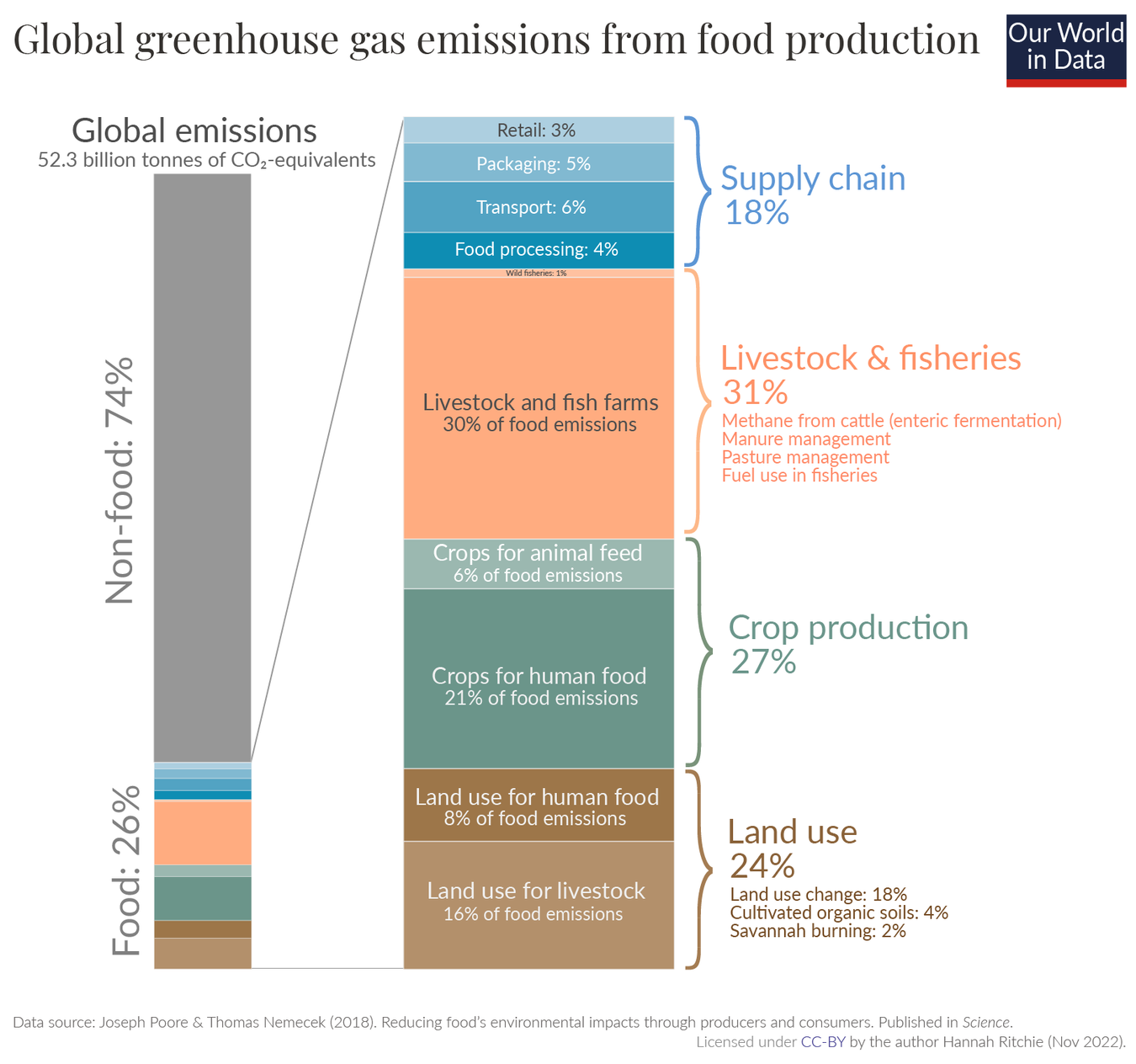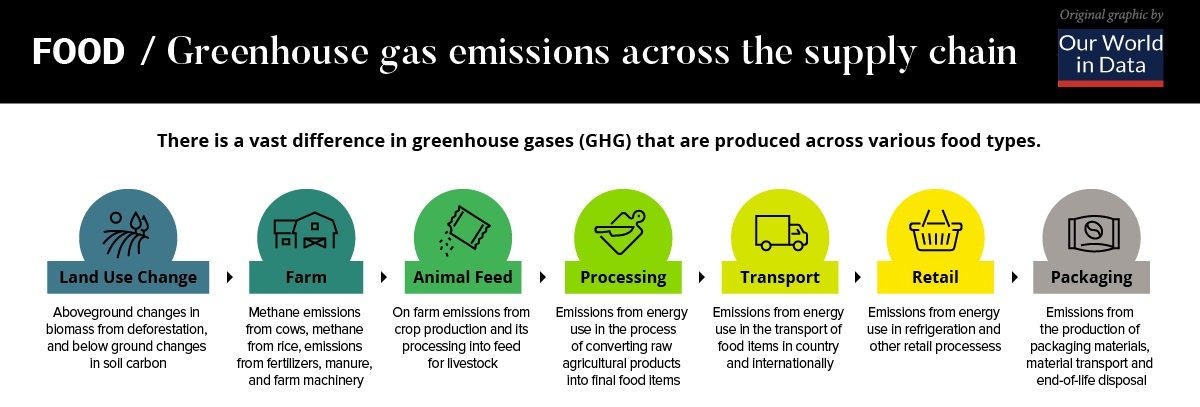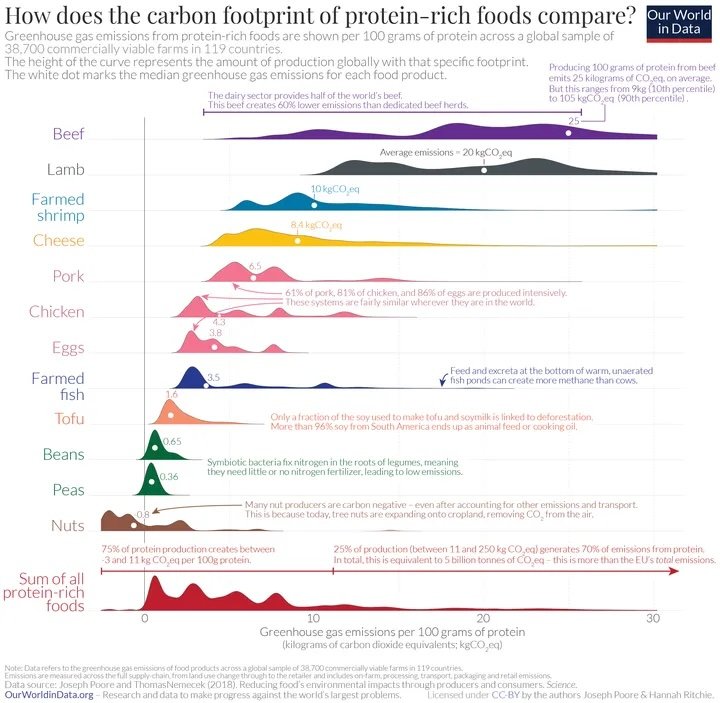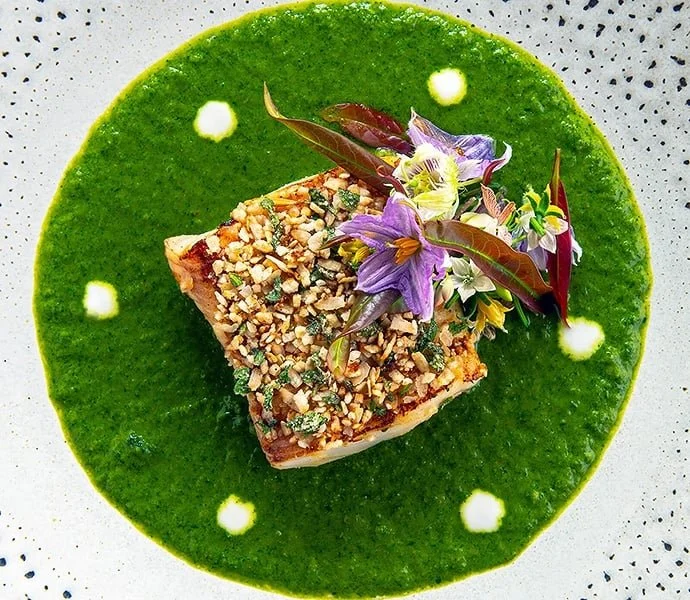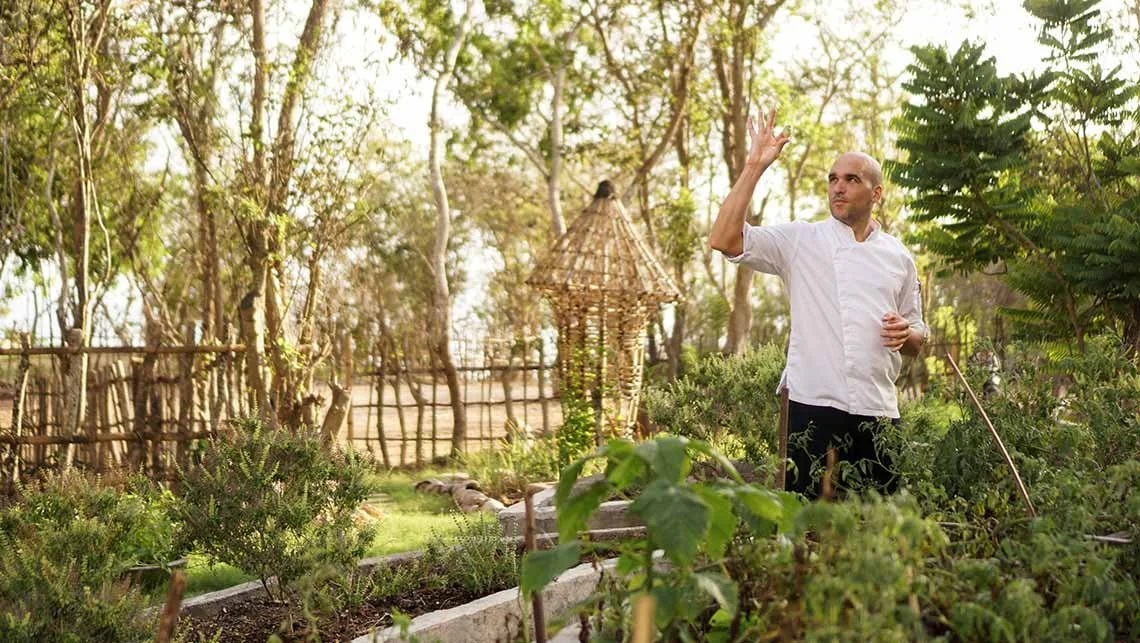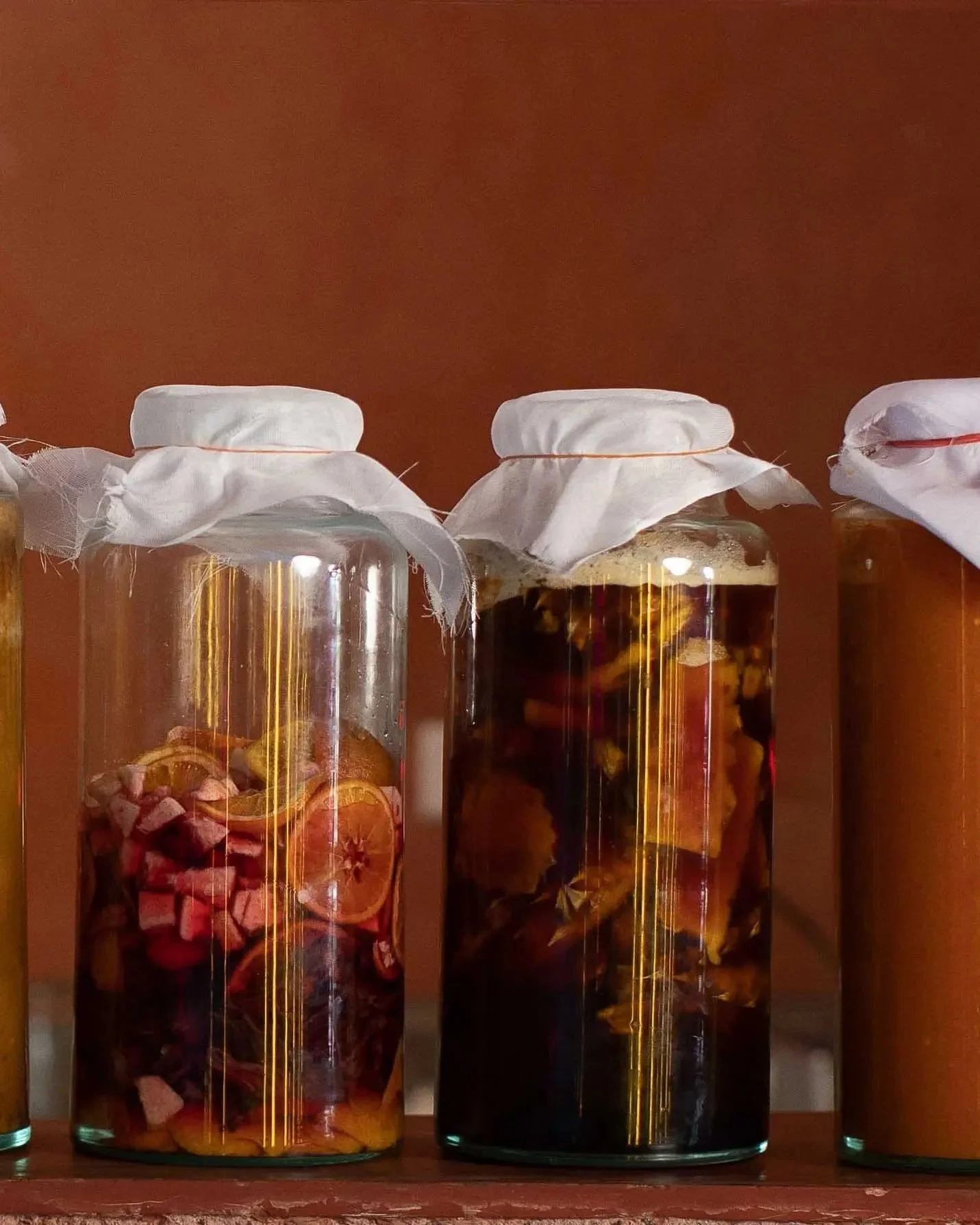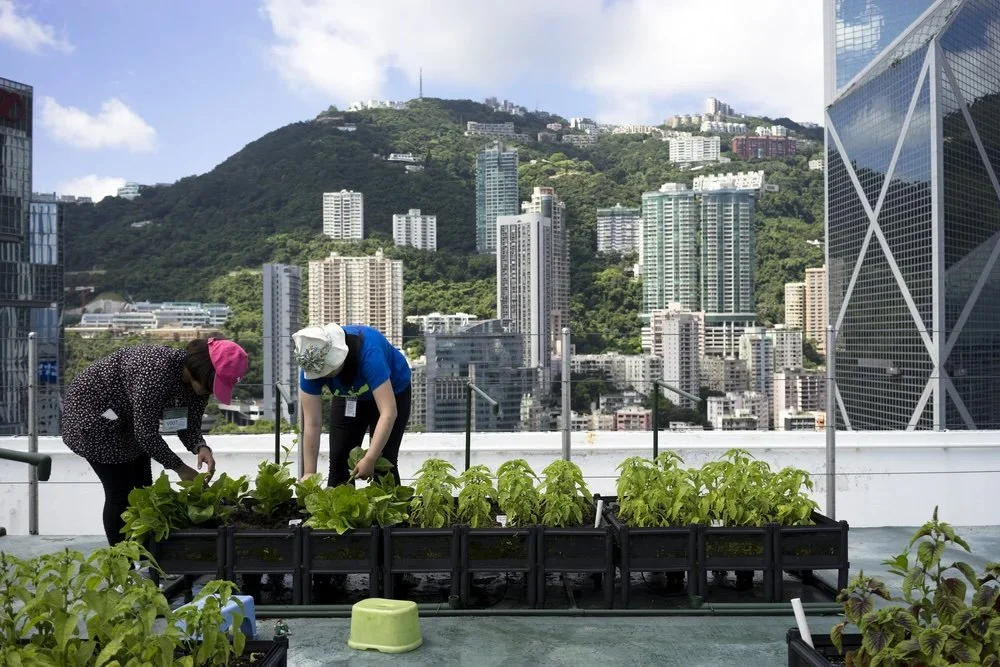What Hospitality Businesses Must Know To Support Sustainable Food Systems, in 3 Charts.
Photo by An ADEC Innovation
Today, we embark on a two-part series to deep-dive into what hospitality and travel companies can do to combat climate change by implementing sustainable and regenerative food sourcing and production.
In this article, we’ll highlight key insights, solutions, and examples for hotels aspiring to achieve sustainable food procurement.
In the consequent article, we'll look into how hospitality businesses can prevent, reduce, and dispose of food waste responsibly.
The Big Picture
According to Joseph Poore and Thomas Nemecek's meta-analysis published in Science, the food industry accounts for approximately 26% of global greenhouse gasses (GHG) emissions.
If we dive deeper, we’ll discover a breakdown that sheds light on the interconnectedness of the issue:
Supply chain: 18%
Livestock & fisheries: 31%
Crop production: 27%
Land use: 24%
Source: Science (2018)
The Pivotal Role of Asia’s Hospitality Industry in Decarbonizing Global Food Production
Hospitality businesses have a superpower: they can choose where they get their food from, and what kind of food and experience they serve to people.
The Travel & Tourism sector generated 7 trillion USD, representing 7.6% of the global GDP, according to the recent figures published by the World Travel and Tourism Council (WTTC).
In 2019, the tourism sector was responsible for 1 out of every 4 newly created jobs, as reported by the International Labor Organization.
Asia accounts for half of the global food market, and the growing appetite for beef in many of its emerging middle-income countries has resulted in deforestation of the Amazon.
When a hotel or restaurant decides to prioritize locally sourced, sustainably produced ingredients, it sends a message to suppliers and farmers that there is demand for such products.
At the same time, it plays a key role in informing consumers of conscious consumption.
The World Economic Forum outlines 4 key ways to decarbonize the food supply chains:
Empower smallholder farmers
Improve soil health and production efficiency
Reduce commodity-driven deforestation
Educate consumers
To achieve these objectives, the hospitality and travel sector must reimagine the way they procure and serve food.
By embracing local food sourcing, offering more plant-based food, and adopting smart waste prevention and reduction strategies, hospitality companies can curtail costs while decarbonizing their food production and championing environmental stewardship.
Low-hanging Fruit: Serve Locally Sourced Food
Imagine biting into a dish where every ingredient tells a story of sustainability, community upliftment, and environmental stewardship.
That's the power of local and responsible food sourcing.
Local food sourcing is a movement, philosophy, and an economic model toward a more transparent, sustainable, and healthier food system.
Local sourcing brings us fresher, more flavorful ingredients. It's a difference you can taste. It has the potential to turn a simple meal into a memorable gastronomical experience.
Yet, the benefits extend beyond the plate.
1. Sourcing food locally lowers carbon emissions
Today’s industrialized food supply chain is a complex web of private businesses and government agencies, from farmers and food producers to custom controllers, distributors, and retailers.
Unsurprisingly, every stage of the supply chain produces greenhouse gasses as illustrated in this infographic by Our World in Data.
A comprehensive understanding of all inputs and outputs is crucial to drive meaningful changes that lead to emissions reduction.
Infographic by Our World in Data
Sourcing ingredients locally often leads to shorter ‘food miles’. And by reducing the distance that food travels from farm to table, businesses can lower carbon emissions associated with transportation.
Further, hotels can opt to source food from nearby regenerative farms that practice organic farming, agroforestry, and soil conservation techniques.
These regenerative practices not only help to sequester carbon in the soil but also reduce the dependency on synthetic fertilizers and pesticides, which have a high carbon footprint.
2. Farm-to-table empowers farmers and businesses near you
When restaurants source ingredients from nearby farms, they're not just reducing carbon footprints.
They're investing in the local economy, supporting family farms, and fostering a sense of community that's hard to replicate with global supply chains.
Responsible food sourcing means that businesses conduct fair trade and direct trade with farmers and food producers.
This practice not only helps to bolster the local economy by retaining money within the community and creating opportunities for local businesses, but also promotes the establishment of equitable wages for workers.
The Big Harvest: Serve More Plant-based Food
The data below comes from the same 2018 meta-analysis seen above, which factored in the food systems in 119 countries.
It’s clear that when striving to minimize your carbon footprint in food service, opting for less meat, even if locally sourced, proves more beneficial than meat-centric choices.
At the same time, it’s worth mentioning that certain types of meat are more carbon-intensive than others.
SPOTLIGHT: How Zero Foodprint Asia’s Regenerative Rice Initiative Sequesters Carbon and Protects Biodiversity
Indonesian rice fields battle persistent pest and disease threats, risking valuable yields.
The reliance on monoculture and chemical inputs exacerbates biodiversity loss and crop vulnerability.
To combat these issues, Zero Foodprint Asia (ZFPA) teamed up with Astungkara Way and reNature to try something new: regenerative rice farming. This involves using ducks to act as soil superheroes and natural pest controllers to fend off insects.
An initiative powered by restaurants and hospitality businesses
Restaurant partners such as the Cruise and The Farmhouse at the Hyatt Centric Victoria Harbour and Roganic Hong Kong, who are part of ZFPA’s 1% pledge program, funds the organization’s Restore grant to make the Regenerative Rice initiative possible.
ZFPA is using its Restore grant to empower land regeneration efforts across Asia, with the aim of sequestering an estimated 48.4 tons of carbon per hectare, totaling 4162.4 tons over seven years.
By investing in innovative initiatives and embracing collective resource management, hospitality businesses can play a paramount role in driving regenerative farming and environmental preservation.
Photo by: The Bali Sun
Common Challenges & Solutions in Implementing These Changes
1. Inconsistent supply
Local farms may not always be able to provide a steady, year-round supply of produce that a commercial kitchen requires to serve its guests and establish a signature dish.
But innovation is key here. Restaurants can introduce seasonal menus, focusing on the supply of fresh ingredients while also offering variety to customers.
For example, Cambodian owner-chef Sothea Seng at Lum Orng develops seasonal menus based on available produce from local markets and growers in and around a village on the edge of Siem Reap.
Photos by: Lum Orng
2. Limited Variety
For many businesses, local sourcing might mean a shorter ingredient list.
But here's where creativity comes in. Use this as an opportunity to innovate in the kitchen, crafting unique dishes to let the ingredients shine.
For example, Alila’s “Zero Waste to Landfill Project” is implemented across all its hotels.
In the kitchen context, this means conducting regular reviews of recipes and menus based on guest preferences, using ‘ugly’ produce or produce nearing spoilage for pickling or signature custards and recycling trimmings for stocks.
Alila Villas Uluwatu does not offer buffet service in its hotel.
Photo by: Alila Villas Uluwatu
→ Check these WWF’s Seafood Guides to avoid serving endangered and unethically-farmed seafood.
3. Plant-based Food Lacks Flavor and Excitement
Asia has some of the world’s richest and most celebrated cuisines, with plant-based dishes emerging as a vibrant celebration of flavors, textures, and cultural heritage.
They’re often overshadowed by their meat-centric counterparts. But Asia’s chefs and hospitality businesses are beginning to flip the script.
For example, Tanaman at the B Corp Certified Potato Head Club in Bali offers vegetarian food and drinks made from Bali's highest-quality produce. Its plant-based dishes “balance nutrition with deliciousness”, centered on natural foods sourced from organic farmers wherever possible.
Photos by: Tanaman
4. Asian Consumers’ Scarcity Mindset
The scarcity mindset gripping Asia's burgeoning middle class finds its roots in a complex tapestry of historical legacies and contemporary socio-economic pressures.
While the Asia-Pacific region has seen rapid urbanization and economic transformation in recent decades, lifting hundreds of millions out of poverty, anxieties about food and resource availability still loom large.
This has profoundly shaped the food consumption behaviors of many Asian consumers, one of which fostered a culture of conspicuous consumption.
The pursuit of status symbols and societal validation fuels a cycle of perceived scarcity, driving many people to indulge in excess food consumption to buffer against insecurities.
Photo by: Shanghai Daily
Awareness and education are key. To combat this mindset and promote conscious consumption, mindfulness, financial literacy, and sustainability campaigns are crucial.
Connecting individual choices to broader issues will pave the way for a more sustainable future.
The inflection point?
McKinsey highlighted in its “Catering to Asian Consumers” report the pandemic has led consumers to focus more on food quality, health, and sustainability, even in countries where these choices were historically considered a luxury.
These priorities remain high on their agenda post-pandemic.
Having said that, it is all-important to educate consumers on what it means to embrace the new luxury – one that is centered on food quality not quantity, and environmental stewardship.
→ Check out our article on sustainable gastronomy to learn how thoughtful curation of activities can bring about a meaningful culinary engagement for guests.
Innovative Local Food Procurement Strategies
No land, no problem. There’s urban farming.
Hospitality businesses in Asian urban centers with limited land availability resort to vertical farming and rooftop gardens for their food supply.
→ Check out our article on sustainable gastronomy to learn how Rooftop Republic in Hong Kong and Sky Greens in Singapore maximize available space to grow crops.
Photo by: Rooftop Republic in Hong Kong
Tech-enabled marketplaces connecting food producers with buyers in Asia
In recent years, a number of digital marketplaces have sprung up across Asia to make it easier for buyers to find and purchase their food from farmers and producers.
Depending on the quantity and food options, hospitality businesses can use these platforms to simplify their food sourcing.
Farmers' Family: Based in India and founded during the Covid-19 pandemic, Farmers' Family connects farmers directly with consumers, offering a platform for farmers to sell their produce online without intermediaries.
Sayurbox: An Indonesian platform founded in 2017, Sayurbox connects over 1 million customers with more than 10,0000 local farmers and producers across Indonesia.
TL; DR
Hospitality leaders can take proactive steps to support sustainable food systems through these actions:
Prioritize sustainable sourcing: Use the power as a buyer to support smallholder farmers who contribute to improving soil health and protecting biodiversity, and influence those who do not.
Embrace local and plant-based food: Reduce carbon footprint by sourcing locally and offering plant-based menus. This, in turn, will support local economies, and uphold environmental stewardship.
Innovate to overcome challenges: Address supply inconsistencies and limited variety creatively with seasonal menus, creative use of produce, and unique plant-based dishes.
Promote conscious consumption: Combat scarcity mindset with awareness and education by emphasizing food quality, health, and sustainability, and offering meaningful culinary experiences.
Explore innovative procurement and transport: Utilize urban farming, tech-enabled marketplaces, collaborative delivery networks, and alternative transportation methods like electric vehicles to overcome supply limitations and simplify procurement from local farmers and producers.
By committing to these actions, businesses not only contribute to the fight against climate change but also demonstrate their commitment to environmental stewardship and social responsibility.
Further, businesses should share success stories and best practices to inspire others in the industry to catalyze a unified movement towards a sustainable future.
Ultimately, by taking action today, hospitality businesses can make a positive impact on the health of the planet and the well-being of today’s population and future generations.
In the next story of this series, we’ll discuss strategies and examples of food waste prevention and responsible food waste management. Sign up for the weekly AST Briefing to be among the first to receive the story in your inbox.



